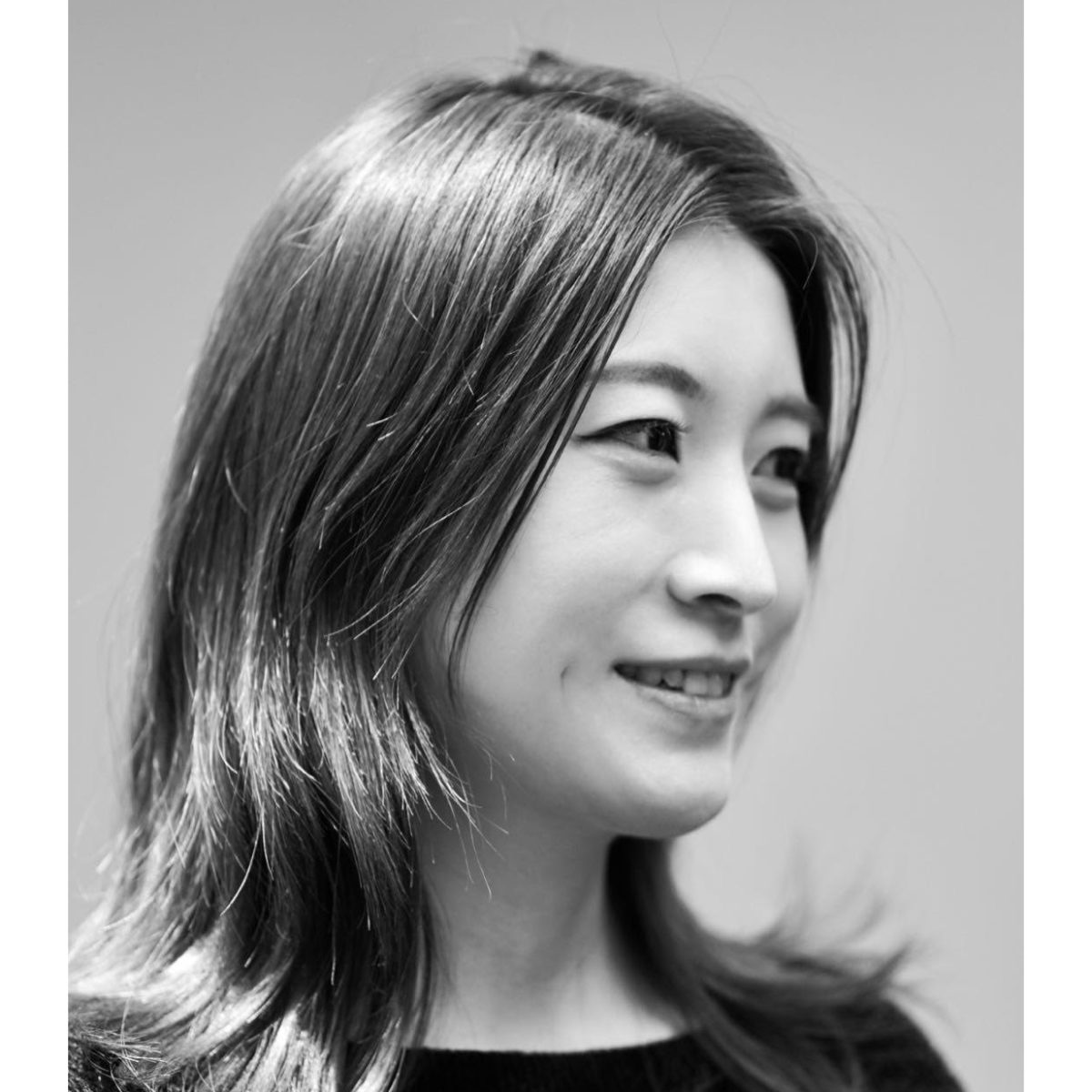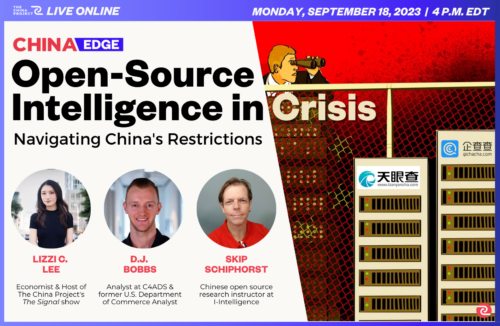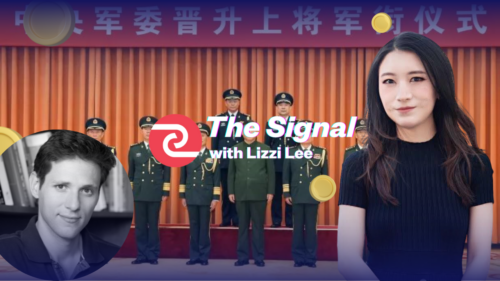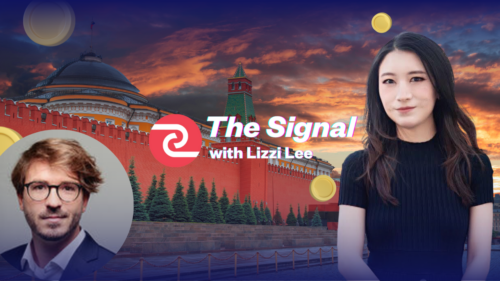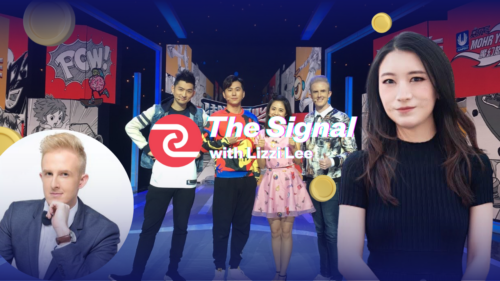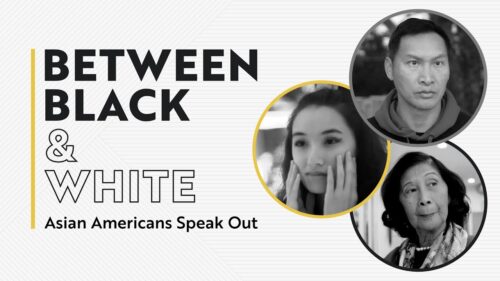From Hattem to Shanghai: China from inside | Live with Lizzi Lee
Jaap Grolleman shares his insights from living in China over the past four and a half years.

Below is a transcript of the video:
Lizzi Lee: Hello and welcome to this episode of Live with Lizzi. I’m your host, Lizzi. Today we have Jaap with us to talk about his observations on the ground living in China. So before we start, can you please introduce yourself to our audience a little more? What specifically brought you to China, and how long have you been living here in China?
Jaap Grolleman: Yeah. So I moved to China in 2018, so four and a half years ago. I’m from the Netherlands and I was working in the Netherlands in marketing, and advertising. The Netherlands has 17 million people. And so it’s quite a small market. And then, of course, China is extremely big. And I did a trip to Shanghai in 2017. From my very ignorant European or Western point of view, I always thought that China is still not as advanced as Europe or the US. And so my first trip to China blew me away — how advanced many aspects were. And I realized how big the market is. So in terms of my work in marketing and advertising. It’s a very interesting challenge.
Lizzi: Well, thank you so much for that introduction. Sounds like an exciting job. But as you know, for the past few years, China was mostly closed down due to COVID related restrictions. First, I wonder if you can give us an update on the COVID situation in Shanghai where you live. Is everything back to normal? Their way of living is roughly back to pre-pandemic.
Jaap: Yes, I think pre-pandemic, especially when it just started, there was like a tiny lockdown for 2020. 2020 was quite normal, except February and March. And then 2021 was also very normal. It was only 2022, it was like lockdown after lockdown. Now it feels like COVID is almost not a thing anymore. Maybe some hospitals are still full. But. Yeah. Masks are less and less. Even on the subway, some people don’t wear them anymore, which was inconceivable last year. And I think it will take some time for international travel to pick up again. The tickets are still a little bit expensive and tourist visas… I’m not sure, but everything is going back to normal extremely quickly. From November last year and then suddenly it was over. I took actually a photo today of the coffee store downstairs and you can compare it with the photo from December. It’s like one is not totally full but one it’s empty. So that’s the change in two months.
Lizzi: It felt like it was just yesterday when we were talking about how those lockdowns might take a toll on China’s economy in 2023. Things change really fast in China. So what would you say is the biggest surprise about China that you discovered in the past few years?
Jaap: Yeah, but this is a very difficult question because China is almost too big an area to say anything meaningful about. The only thing I often say when I get this question is the lack of culture shock. Maybe because we live in Shanghai. And I imagine it would be a massive culture shock, but actually many things are very similar. In the beginning I didn’t speak any Mandarin and now I’m quite conversational, but I haven’t really had a massive culture shock. Yeah, I think before I moved to China, I read a lot of books about to prepare myself to try to understand the Chinese culture, however you could define it. And there’s like a lot of books written by mostly foreigners that I have been reading, and they all talk about mostly the same topics like money or and then a lot of things they come back in a lot of books like the green-skinned train. And also books on drinking culture, and especially government officials would often be drinking Baijiu, So when last Saturday I had my first meal with officials… it was a lunch. It was not a dinner, but with government officials. I was expecting this to be like a drinking fest or something, and then nothing like that. And we had orange and corn juice.
Lizzi: When we look on Weibo sometimes we encounter people who are 小粉红 xiǎo fěnhóng, it sort of gives out this impression that young people, this generation of young people, are more hostile toward the West. I wonder if that is also your impression or is something different?
Jaap: Not at all, I think. I think in some lower tier cities there will be some people that don’t interact with foreigners a lot. They are not really hostile, but they will think, okay, us, those are bad guys, especially the U.S., by the way. If I go to a lower tier city and they ask me, “Are you American?” And I say no. And then I visibly see them relax. And I say, I’m from the Netherlands. And you see them relaxed. But maybe they would relax anyway. I’m working in a tech company now, and the young people here, they like foreign brands also. I think Chinese brands are becoming more mature, especially car brands, electric vehicles. Especially in these tech companies they use VPNs, and they understand foreign media extremely well. A lot of them are on Reddit, also Facebook, Twitter. I suppose because Shanghai is such a tiny part of China. When it’s in the news and you’re about to hear Shanghai, or Beijing, but it’s only a tiny, tiny part of the country.
Lizzi: How concerned are you about the geopolitical headwinds China faces from the West or from the United States, etc., etc., and whether those kinds of geopolitical tensions externally have had any impact on China’s business or China’s economy, as someone working on the ground, do you actually feel that on a day-to-day level?
Jaap: Uh, no. Yeah. Maybe I should be worried about it, because I think the last few months, I’ve read some articles about the decoupling of those economies. My own opinion is, I’ll see it when we get there, because I have had this feeling in the past when 3D printers were here, I thought, okay, this is going to change everything. And what was it like eight years ago? I was in a self-driving Tesla, and I thought, okay, we’re not going to have self-driving cars everywhere in three years! And usually change is not so fast. I might regret this in a few months, but I will see when we get there. That said, I do work at a tech company, and we create VR headsets. Well, yeah, you do sometimes see comments on Western media about our headsets that they think the Chinese government can check your data and stuff, but it’s a minority of comments. So there is a little bit of this, and we’re not a big enough brand to be banned or anywhere in the U.S. or in Europe. So I’m not too worried about that yet. If we become such a big brand and we’ve done our job really well.
